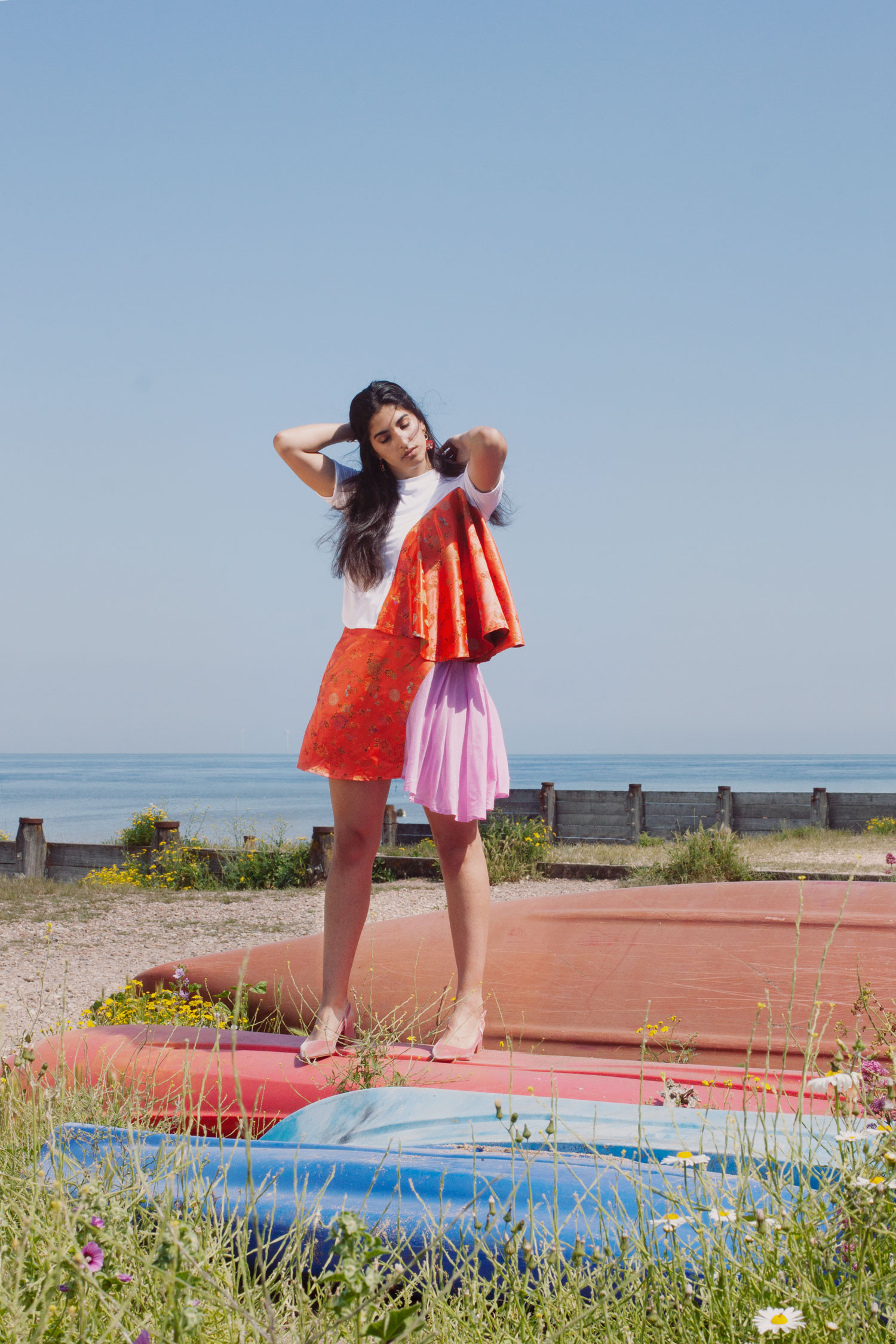environment2021/11/14
Ethical Enthusiast: Wolf & Badger Ethical Brand Of The Year 2021
by Wolf & Badger
Ethics is all, here we have a look at the brands going above and beyond to look after the people involved in production.
Joon is a social enterprise aiming to strengthen disadvantaged producer communities. Every product in their collection is handmade by artisans and 100% of the profits made by Joon are reinvested back into the communities. The homeware products are made from local weaved fabrics, ecological fibers, and dyes that are certified for environmental sustainability.
Kiki Clothing is known for its blend of West African inspired prints with minimalist silhouettes. The brand produces in-house in Ghana, prioritising ethical practices - offering above average wages, with tailors having their own sewing machines at home. Kiki also partners with non-profit organisations that positively impact the well being of children and teenagers, with a good education as a priority. The brand also support and partner with organizations such as Opportunities Industrialization Centre Ghana, whose focus is to help young adults reach their full potential.
Kahindo is a socially responsible womenswear brand dedicated to ensuring ethical work practices for the women who create their line in Africa. They use their colorful brand to create social change by empowering women, closing the gender gap, paying fair living wages and creating sustainable jobs in Africa for their global partners. The brand have pledged to meet the United Nations’ Sustainable Development Goals, which include gender equality, climate action, access to quality education, and elimination of poverty.
Mama Tierra is a Swiss non-profit organization that has been supporting indigenous peoples since 2014 in their quest for self-determination, human rights and environmental protection. The NPO offers existence-saving wages and financial independence for indigenous women. The focus is on women because they ensure the well-being of the family, securing its income and educating the children. Mama Tierra uses sustainable materials such as recycled or GOTS certified cotton yarns, shipped by sea instead of air. In addition, the brand uses a plant-based leather made of cactus rind and ananas leaves, which are partly biodegradable. This reduces plastic pollution in indigenous lands.
Manimekala combines aesthetics and ethics, creating fashion with a social mission. The brand combines design with a meaningful social mission by working in partnership with social enterprises, making our products fairly and responsibly, supporting marginalised women to empower themselves. One of their partners is Saheli Women, a women’s collective and ethical fashion enterprise located in the desert village of Bhikamkor, Rajasthan in northern India. Started 5 years ago by an ambitious local social worker called Madhu, Saheli Women now employs over 35 village women, empowering them and supporting their families.
Origin Africa is the UK's first 100% not-for-profit fashion brand, raising funds for humanitarian projects through the sale of ethical clothing. It was founded to establish a sustainable process for creating opportunities for people living in poverty to self-eject from that trap, by developing skills through sustainable good jobs, and enhancing their personal, psychological and socio-economic well-being. All printing and embroidering is done in the South West of the UK, close to Origin’s base in Devon, with vegan-approved and non-toxic printing dyes.
Pink Haley encapsulates the concept of slow fashion, creating handcrafted goods that are made to last. The artisans they work with are respected for their craftsmanship and skills, ensuring they are paid a sustainable living wage. The brand also encourages their artisans to continue their unique handcraft skills and to carry them onto the next generation. Collections are only made in small batches and made on demand to avoid excessive consumption and waste.
Wonther is based on three pillars: ethics, sustainability, and inclusivity and their pieces are certified by the Responsible Jewelry Council. They’ve recently partnered with Missão Dimix, a nonprofit to eliminate menstrual poverty and promote menstrual dignity instead, as well as donating 10% of sales to Piano i, a local Portuguese association that provides counseling, housing, and general support to the LGBTQIA+ community.
Shop the article
Read more
ENVIRONMENT
Ethical Enthusiast: Wolf & Badger Ethical Brand Of The Year 2021
Ethics is all, here we have a look at the brands going above and beyond to...
ENVIRONMENT
Sustainability Superstar: Wolf & Badger Sustainable Business Of The Year 2021
Here we focus on some of our brands who are making strides to embed...
ENVIRONMENT
Materials Master: Wolf & Badger Vegan Alternative Brand Of The Year 2021
Here we recognise brands making an effort to swap animal derived materials...
ENVIRONMENT
Species Saviour: Wolf & Badger Animal Protection Brand Of The Year 2021
We like to recognise brands who incorporate charitable giving into their...
ENVIRONMENT
Nurture Nature: Wolf & Badger Natural Material Brand Of The Year 2021
Balushka have a passion for traditions and use the highest quality linen and...



